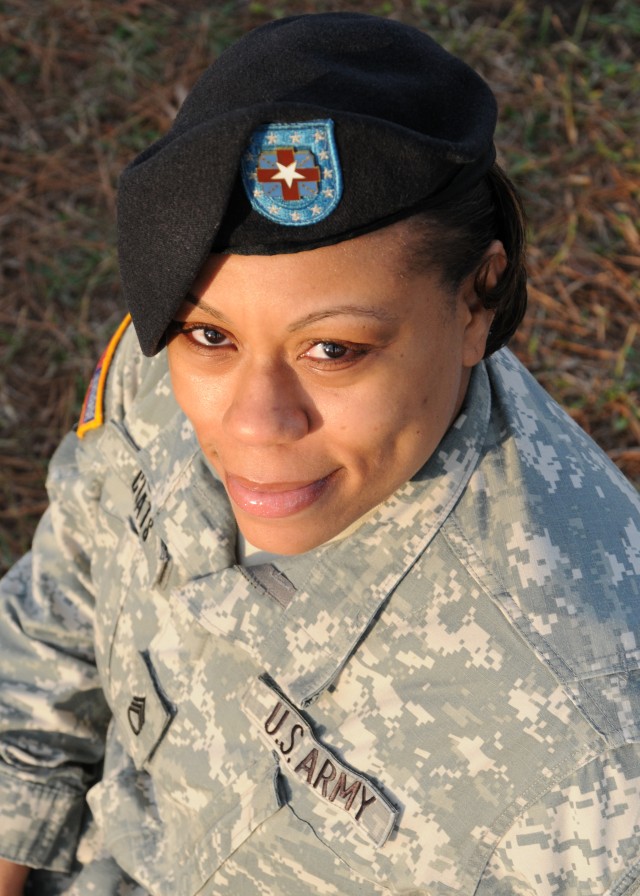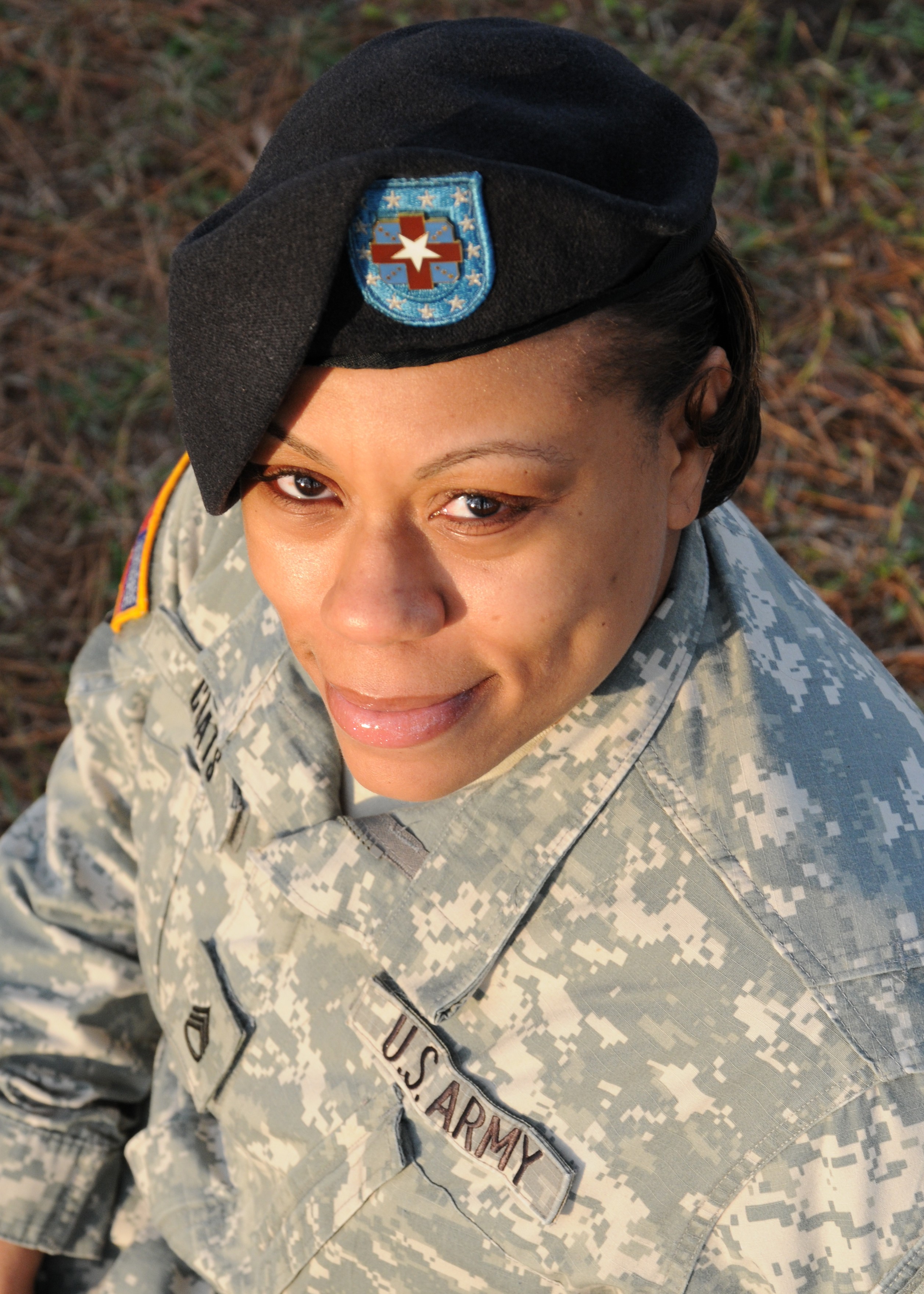FORT BRAGG, N.C. - In the Army, a Soldier's squad leader is the person responsible for making sure the Soldier is cared for. The squad leader ensures the Soldier is where he or she is supposed to be during the duty day. Perhaps most importantly, he or she trains their Soldiers, helping them grow into the Army's next generation of leaders.
The role of a Warrior Transition Battalion squad leader is similar, but requires a slightly different approach and complete devotion to the job. Staff Sgt. Jamika D. Coats, a squad leader in Company A, WTB, has that devotion.
Coats has been a squad leader at the WTB for slightly over two years. She arrived at the WTB in the early days of the unit becoming established and has watched operations change and improve over the years. She said she loves her job so much that she chose to extend in order to continue working there for another year.
Staying at the WTB means that Coats will continue to be on call 24 hours a day, seven days a week, working whenever her Soldiers need her. She said her job is worth it because what she does is personally rewarding.
"I like what I do and I love my Soldiers," said Coats, a Richmond, Va. native. "The best part about my job is seeing Soldiers recover - seeing a Soldier overcome their injury and motivating others to do the same."
She said one Soldier who was injured in Iraq and almost lost his leg motivated her both personally and professionally from the first time she met him. He was unconscious when he first arrived at Womack Army Medical Center and Coats first saw him while surrounded by his fiancAfA and his mom.
"It's hard for me to hide what I'm feeling and I didn't know what to say. I can't say I understand, because as much as you see it, you can't understand how it feels for him or his Family," she said. "Here I saw a 23-year-old male who might have to have his leg amputated. I had his old (physical training) cards, I saw what type of Soldier he was, what could I say'
"He woke up and started cracking jokes. I stood there, not wanting to laugh because I didn't want to make fun of what he went through. He stayed that way, positive and laughing. He recovered and kept his leg," Coats said.
Her job includes checking to make sure her Soldiers' medications are secure when they are not in their rooms; that their rooms are being properly maintained by both the Soldiers and the staff who maintain the rooms at Moon Hall where many of the WTB Soldiers live; and helping her Soldiers through their recovery process by working with them, their caregivers, case managers and Families.
Coats meets with her Soldier's case managers and doctors once a week to discuss all aspects of the Soldier's life and care. They discuss pain management, appointments, physical limitations and restrictions (profiles), and surgeries. They also discuss how the Soldier is outside of treatment, including their educational pursuits and their transition plan, whether the Soldier plans to return to active duty or transition to civilian life.
The case managers who work with Coats all praised her dedication and compassion.
"I've worked with a lot of squad leaders and platoon sergeants and, without a doubt, Staff Sergeant Coats is one of the best," said Lisa Rechkemmer, WTB nurse case manager, WAMC. "She leads the way and truly leads by example. She's extremely gifted and talented."
Pfc. Jason Mitchell, who has been in Coats' squad for almost a year and is preparing to transition from the Army and go to college to pursue a degree in marine biology, said Coats is someone he knows he can count on.
"She is unlike most NCOs," said Mitchell. "Most NCOs will come up and ask you what you need and how you're doing, but that's the end of it. When you tell (Staff Sergeant Coats) something, you know she really cares and that she will do something about it. She always listens, you can be honest with her and she's always honest with you."
Coats, who has served in the Army for 10 years, with four years as a Reservist and on active-duty for six, said she appreciates the praise from everyone she works with, but said she doesn't do it alone.
"There are some challenges to the job and a lot of rewards," she said. "All of it is made easier because I have a chain of command that supports me as I try to do my job and my Soldiers as they do their job - getting well."


Social Sharing